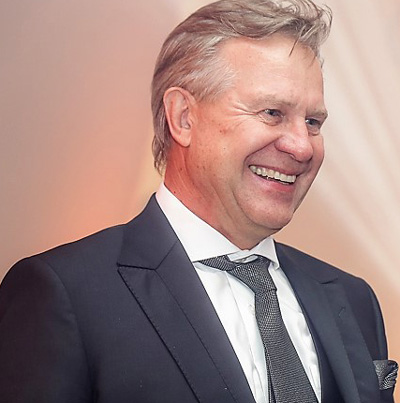
Savino Del Bene denies any role in Walvis Bay alcohol smuggling ring

Following a bust a fortnight ago and the subsequent destruction of alcohol worth N$10 million by Namibian customs officials at Walvis Bay, the company implicated in the scandal, this week made a statement denying all allegations of trading in illegal alcohol.
In the meantime, the trading company, Savino Del Bene, has been fined N$59 million by the department of Customs and Excise.
In an exclusive interview with the Economist, Savino Del Bene’s Managing Director, Mr Kobus Maree, flatly refuted rumours that the company is in anyway involved in these illegal activities saying that it had ceased trading through Walvis Bay early in 2017 and handed over operations to another party.
“I submitted an affidavit to the acting Customs Commissioner on 30 October outlining our position as well as requesting a meeting which we hope will be granted shortly. Our urgency lies in the fact that we are a well-established and respected international company and these unfounded accusations are very damaging to our reputation,” he said.
Maree who is based in South Africa said he will be in Namibia shortly to see the authorities concerned. “This is a follow-up to my communications with them including affidavits which are an earnest attempt to establish the innocence of the company.
“The affidavits commit Savino Del Bene, through an open and transparent process, to assist the Namibian authorities in bringing the illegal traders in this instance to book. The company also offers to align itself without reservation to any investigations necessitated to uncover and to expose the illegal trading activities” he stated.
Maree said losses incurred by illegal trade where governments are losing billions of dollars in tax revenues, undermine legitimate businesses and expose consumers to poorly made and unregulated products through which the United Nations estimated that in 2009, US$2.1 trillion was generated in illicit revenues. The World Trade Organisation estimates that the value of counterfeit and pirated goods is equivalent to about 7% of the world’s merchandise.
“Savino Del Bene is part of a worldwide corporate network that specialises in global logistics, freight forwarding, clearing and supply chain management operating in 47 countries with facilities in America, Africa, Asia, Europe, Australia and the Indian subcontinent.
“The company has traded across Southern Africa for the past 21 years establishing an impeccable reputation for ethical trade facilitation. Some of the world’s top companies are counted among Savino Del Bene’s clients and the company’s top executives have striven tirelessly in the local, national and international logistics industry to improve trade at all levels,” Maree said.
“Savino Del Bene started operations in Namibia in 2012 but five years later ceased operations at the beginning of 2017 and handed over the business to a local company, Woker Freight Services. This process was conducted in the same methodical, compliant and ethical fashion which ensured the exit was characterised by continuous consultation with relevant government departments, followed by a carefully orchestrated handover of the accounts to the local company and the debriefing of clients,” he added.
“We believe an amicable resolution can be reached and the situation can be escalated to combat the internationally growing threat of elicit counterfeit goods trading. It takes a strong combination of Customs authorities and private business sector activists to combat this illicit trade flows which increasingly is becoming the domain of organised crime,” he said.
Meanwhile Savino Del Bene confirmed that they have received a response from the acting Commissioner later in the day but will only make this available once their own executives have formulated a reply.









































